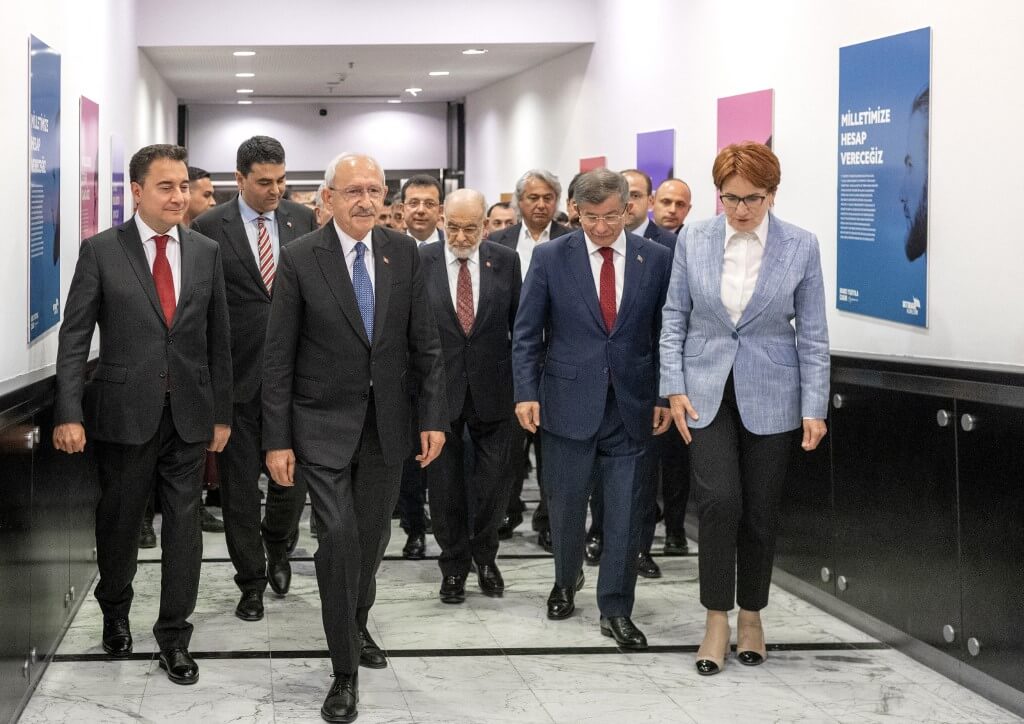Turkey’s secular opposition leader may have succeeded in forcing President Recep Tayyip Erdoğan into his first-ever runoff, but his chances of winning on May 28 are remote.
Kemal Kılıçdaroğlu was predicted to perform well in Sunday’s election but ended up with under 45 percent, while Erdoğan fell just short of the 50 percent threshold required for an outright victory.
His six-party alliance now needs to accomplish seemingly impossible electoral gymnastics to unseat Erdoğan, who needs just a sliver of extra support to extend his two decades in power to 2028.
“The second round will be easier for us,” Erdoğan spokesman İbrahim Kalin said on Tuesday. “There is a difference of five points, close to 2.5 million votes. There would seem to be no possibility of this gap closing.”
Mobilizing more young voters could boost Kılıçdaroğlu’s prospects, with polls suggesting he will win that group by a two-to-one margin.
More than 5 million first-time voters — who have grown up knowing no leader other than Erdoğan — were eligible to vote on Sunday and are deemed more likely to want change.
Kılıçdaroğlu, a 74-year-old former civil servant, tried to revive his campaign on Tuesday with a message targeted at young people.
“You can’t afford anything. You even have to think about buying a cup of coffee. Your joy of life has been stolen, whereas youth should be carefree,” he said on Twitter.
“They didn’t give you that even for a day.”
Kurds: a double-edged sword?
Kurds, a minority ethnic group representing around 10 percent of the electorate, may also come out stronger in favor of Kılıçdaroğlu.
The opposition leader, himself an Alevi Kurd who represents one of Turkey’s most repressed communities, was endorsed by the pro-Kurdish Peoples’ Democratic Party (HDP) in late April.
But Sunday’s turnout in Kurdish-majority provinces was believed to hover around 80 percent — well below the national average of almost 89 percent.
Greater Kurdish support may also be a double-edged sword that makes Kılıçdaroğlu’s bid for power near impossible.
One of Erdoğan’s attack lines was linking the opposition to outlawed Kurdish militants that have waged a deadly insurgency against the Turkish state for decades — an appeal to nationalist and conservative Turks that appeared to work.
“On balance, Kılıçdaroğlu’s electoral alliance with pro-Kurdish HDP hurt him,” said Washington Institute analyst Soner Çağaptay.
“Some HDP voters in Kurdish-majority provinces stayed home on election day, while some Turkish nationalist voters abandoned Kılıçdaroğlu, admonishing him for allying with the HDP.”
Sinan Oğan, a nationalist third candidate, picked up 5 percent of the vote, and his support could be crucial in the runoff.
He is a secular nationalist, which separates him from religious conservatives who have rallied around Erdoğan.
But he has also campaigned strongly against “terrorism,” a word that many Turkish politicians use to condemn Kurds.
Easier time for Erdoğan
“Anti-Kurdish nationalism of this line represented by Oğan … makes it very difficult for Kılıçdaroğlu to strike a deal,” Kürşad Ertuğrul of Ankara’s Middle East Technical University told AFP.
Even if Kılıçdaroğlu somehow earned Oğan’s backing, that would probably alienate the Kurdish vote, said Berk Esen, a political science professor at Sabancı University in Istanbul.
The disparate six-party opposition alliance, which only selected Kılıçdaroğlu as their joint candidate after a year of bitter argument, now also faces the challenge of staying united after Sunday’s disappointment.
“Erdoğan will have an easier time than Kılıçdaroğlu wooing voters,” especially Oğan’s backers, noted Emre Peker of the Eurasia Group consultancy.
“The president’s supporters are also likely to turn out in greater numbers to vote in the runoff than Kılıçdaroğlu backers as opposition … momentum ebbs.”
Having won 49.5 percent in the first round, Erdoğan does not need to make major concessions to Oğan to win on May 28, added Esen.
Erdoğan’s campaign is likely to stay focused on security issues, a winning formula among Turkey’s “conservative-nationalist” working class despite the severe impact of the economic crisis, Ertuğrul told AFP.
The idea of a “great Turkey” being forged through infrastructure projects and tapping into “the conservative sensibilities of the ‘moral majority'” were also at the heart of Erdoğan’s messaging, he added.
“This campaign [irrespective of the truth of the statements] seems to have resonated with his social base.”
© Agence France-Presse

